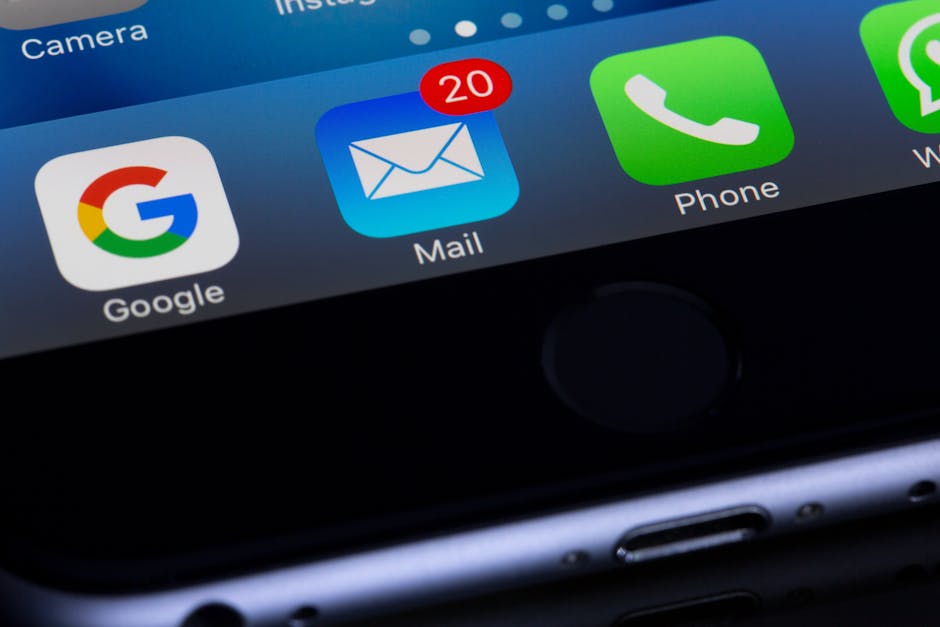So, it’s 2025 now, and you might be thinking, “Email? Really? Isn’t that like, old news?” But for folks running small businesses, especially ones trying to get their name out there without a giant pile of money to throw around, email marketing is still a pretty big deal. It’s one of those tools that, honestly, it keeps doing a lot of the heavy lifting. People often forget just how much good it does, or they just figure it’s something bigger companies do. But no, it’s really for everyone.
It’s just that a lot of small business owners, they’re busy, right? Juggling a million things, trying to keep everything going. They might not have time to sit down and figure out all the digital marketing stuff, which is totally understandable. But passing over email marketing, that could be a bit of a mistake, honestly. It’s not as flashy as social media, maybe, but it usually gets the job done in its own quiet way. For sure, it is a method that keeps delivering results, year after year.
You see, a lot of what we know about connecting with customers, it sometimes changes pretty fast. But the basic idea of talking directly to someone, that doesn’t really change, ever. Email lets you do just that. It pops right into their personal inbox, which is kind of special. It’s not screaming for attention on a feed where everything else is screaming too. It waits there, pretty patiently, for them to open it. This direct line, it’s a big deal.
And when we talk about small businesses, budgets are often tighter than tight, normally. Every dollar counts, and you want to make sure every penny you spend on marketing, it actually makes sense. Email marketing, it’s generally pretty good on the wallet. You can start small, do a lot yourself, and often see good returns. It’s not always about spending big bucks to get big results, sometimes it’s just about being smart about what you do.
Why You Still Need Email in 2025 (Or Maybe Even More So)
Even with all the new apps and platforms popping up, people still use email. Like, every single day, most of us check our email accounts. It’s just a regular part of how we communicate, both for personal stuff and for work. So, your messages can still reach people pretty directly. It means your small business has a way to land right in someone’s personal digital space. This closeness, it’s a big advantage.
Think about it, people generally give out their email addresses when they’re somewhat interested in what you offer. They’re opting in, which means they want to hear from you. This is different from just seeing an ad pop up on social media, where they might not care at all. This kind of permission-based communication, it usually means your message has a better chance of being looked at. So, you’re starting with an audience that’s already got a little bit of interest.
And getting past all the noise on social media? That can be really hard for a small business. You’re competing with everything under the sun, from cat videos to major news stories. Email, it cuts through some of that, just a little bit. It gives your specific message a clearer path. It’s a less crowded avenue, normally, for you to make your point. That’s why it is considered to be a go-to for many.
It’s also about having some control. When you use social media platforms, you’re playing by their rules, which can change without much warning. Your content might not get shown to as many people as it used to, and there’s nothing much you can do about it. With your email list, though, those subscribers are yours. You own that list, and you control how and when you talk to them. This independence is a really powerful thing.
Building Those Connections, You Know?
For small businesses, people buying from you, it’s often not just about the product itself. It’s also about the relationship they have with your business. They want to feel like they know you a little, and that you understand what they need. Email is super good for building that kind of connection over time, honestly. It helps people feel like they’re part of your little world.
You can tell stories about your business, what goes on behind the scenes, or maybe even what inspires you. These kinds of messages make your business more human, more relatable, really. People like to buy from people they feel good about, people they trust. And email gives you a spot to just be yourself, letting your personality come through. This can set you apart quite a bit.
Sending out regular newsletters, or special updates, it keeps your business in people’s minds. Even if they don’t buy something every time, they’ll remember you when they do need what you sell. It’s like a friendly reminder, without being too pushy or anything. Just a little nudge to say, “Hey, we’re still here, doing our thing.” This regular contact is super helpful, keeping you top of mind.
And the great thing is, you can make your emails pretty personal. You can call people by their names, which is a nice touch. You can even send different messages to different groups of people, based on what they’ve bought before or what they’ve shown interest in. This makes them feel special, like you’re talking directly to them, not just shouting into the void. It’s a way to show you care.
It’s All About the Money, Really
Let’s be real here, small businesses need to make money to stay open, obviously. And marketing, it’s supposed to help with that. Email marketing is usually pretty darn good at bringing in sales. The numbers normally show that for every dollar you put into email marketing, you get a good chunk of change back. It’s often one of the best return-on-investment methods out there. That makes it a smart choice for pretty much anyone.
Think about special deals or sales you want to promote. Email is a perfect way to get that information right to the people who are probably most interested. You can send out exclusive discounts just for your subscribers, making them feel like they’re getting a secret club kind of deal. This often makes them more likely to actually buy something from you, which is the goal. These focused promotions often do quite well.
You can also use email to remind people about stuff they left in their online shopping carts. Like, sometimes people get distracted, right? A quick, polite email saying, “Hey, you forgot this!” can sometimes bring them back to finish their purchase. It’s a simple little thing, but it helps make sales that might otherwise slip away. This kind of automated reminder is pretty neat.
And when you launch a new product or offer a new service, you’ve already got a ready-made audience to tell about it. Your email list is full of people who already know you and generally trust you a bit. They’re more likely to listen to what you have to say about something new. This makes product launches way smoother, normally, and it is considered to be more successful. It’s a built-in fan club, almost.
Making It Work Without a Huge Budget
One of the best things about email marketing for small businesses is that it doesn’t usually cost an arm and a leg. There are lots of platforms out there that let you start for free, or for a really low monthly fee. This means you don’t need to empty your savings account just to get started with it. It’s something you can build up over time, which is really good. It’s a budget-friendly option, for sure.
You don’t need to be some fancy graphic designer to make good-looking emails either. Most email service providers have easy-to-use templates that you can just drag and drop stuff into. You can add your logo, your colors, and your words, and it’ll look pretty professional. It makes the whole process much simpler than you might think. This ease of use helps a lot.
And as your business grows, and your email list gets bigger, you can usually scale up your email marketing without huge jumps in cost. The tools are made to grow with you. So, you’re not going to hit a wall where it suddenly becomes unaffordable. It’s a marketing method that can stick with you for the long haul, which is very helpful. It just keeps on adapting to your needs.
Plus, you can learn a lot from how your emails perform. Most platforms give you reports on things like who opened your emails, who clicked on links, and which messages did best. This information helps you get better at it over time, figuring out what your audience likes. You can make little tweaks and improve things without spending extra money on it. It helps you get smarter about what you do.
Getting Personal, Even When You’re Small
Being a small business, you actually have a bit of an edge when it comes to being personal. Big companies, they try, but it’s hard for them to really connect one-on-one with everyone. As a small business, you can make every email feel a little more human, a little more direct. It’s something people really appreciate, you know. That personal touch really does matter.
You can use what you know about your customers to send them messages that are actually relevant to them. If someone bought a certain item, you can send them ideas for related items, or tips on how to use what they bought. This isn’t just spam; it’s genuinely helpful stuff. People are way more likely to open and read emails that actually make sense for them. It’s about being useful.
And if you get replies to your emails, try to respond to them. It shows you’re listening, and that you care about what your customers have to say. That kind of back-and-forth communication, it builds a really strong bond. It makes customers feel valued, like they’re not just another number in your system. That sort of personal care helps them stick around.
Ultimately, email marketing, it’s not just about selling stuff. It’s about building a community around your brand, really. It’s about creating a group of loyal customers who feel like they’re part of something special. And for small businesses, that kind of loyalty is pretty much priceless. It’s what helps you keep going, through thick and thin, for a good long while. It’s a pretty special thing to build.
FAQ About Email Marketing for Small Businesses
Q1: Is email marketing really still effective in 2025 with social media being so big?
Yeah, it totally is. While social media is good for quick interactions, email gets your message right into someone’s private inbox. People generally still check their emails every day, and an email list means you own the connection, unlike social media where platforms can change their rules. It’s a more direct line, normally.
Q2: I don’t have a big marketing budget. Can I still do email marketing?
Absolutely! There are lots of free or super cheap email marketing services out there that are perfect for small businesses. They have easy-to-use templates, so you don’t need special skills. You can start small and grow your efforts as your business grows without spending a ton of money. It is considered to be a very cost-friendly option.
Q3: How do I get people to sign up for my email list?
You can put a sign-up form on your website, offer a small discount or a free guide if they subscribe, or collect emails at your physical store. Just make sure to tell people what kind of content they’ll get and why it’s good for them to sign up. Make it easy for them.
Q4: What kind of emails should a small business send?
You can send newsletters with updates, promotions for sales or new products, helpful tips related to your business, or even just stories about what’s going on behind the scenes. The goal is to keep your audience interested and engaged, not just sell, sell, sell. Mix it up a little.
Q5: Is it hard to learn how to do email marketing well?
Not really. Most email marketing tools are pretty user-friendly these days. You can start simple, and as you get more comfortable, you can look into more advanced stuff like segmenting your audience. There are lots of resources online to help you learn as you go, normally. It’s a continuous learning curve, but not a steep one.



